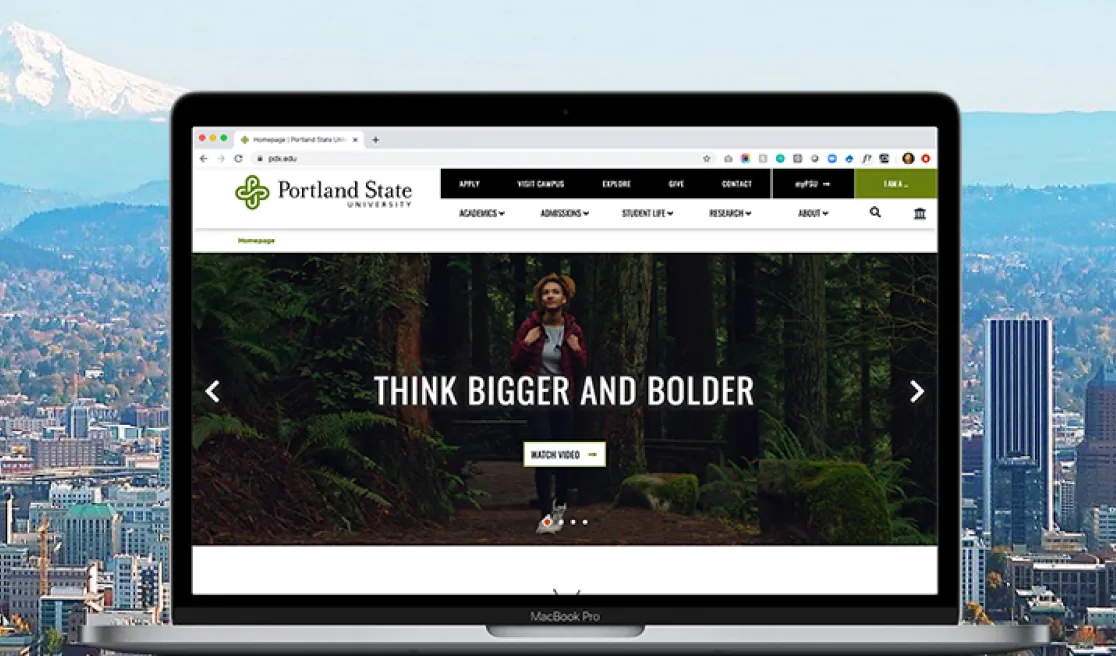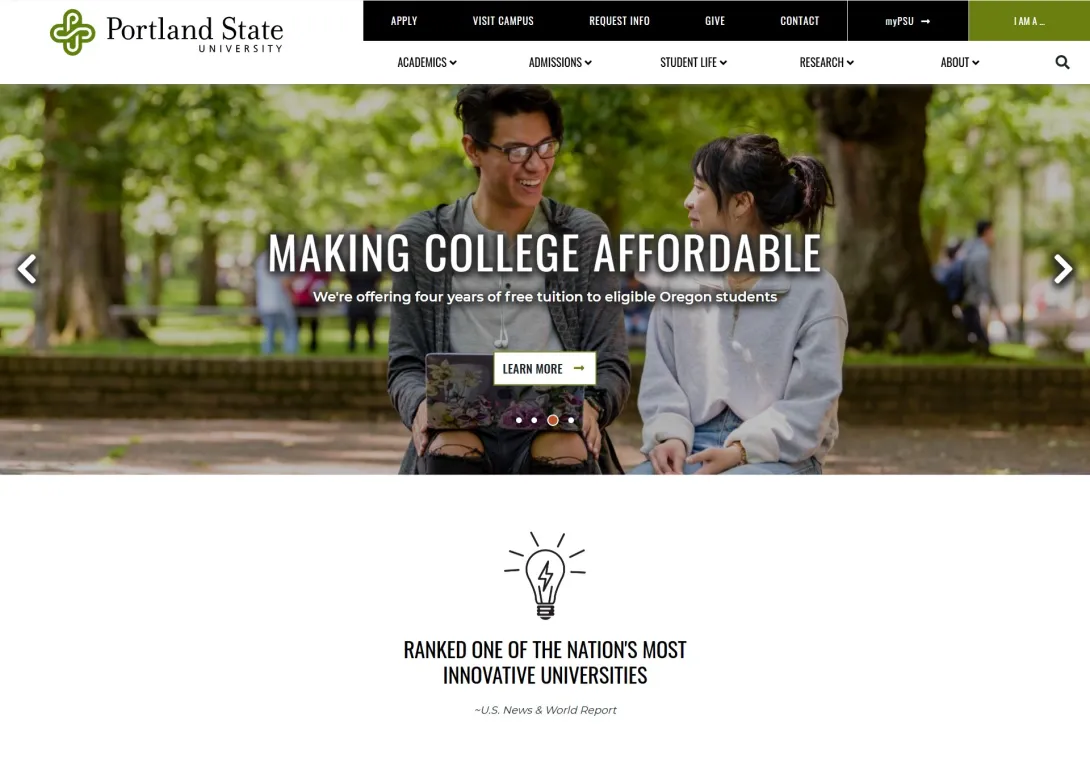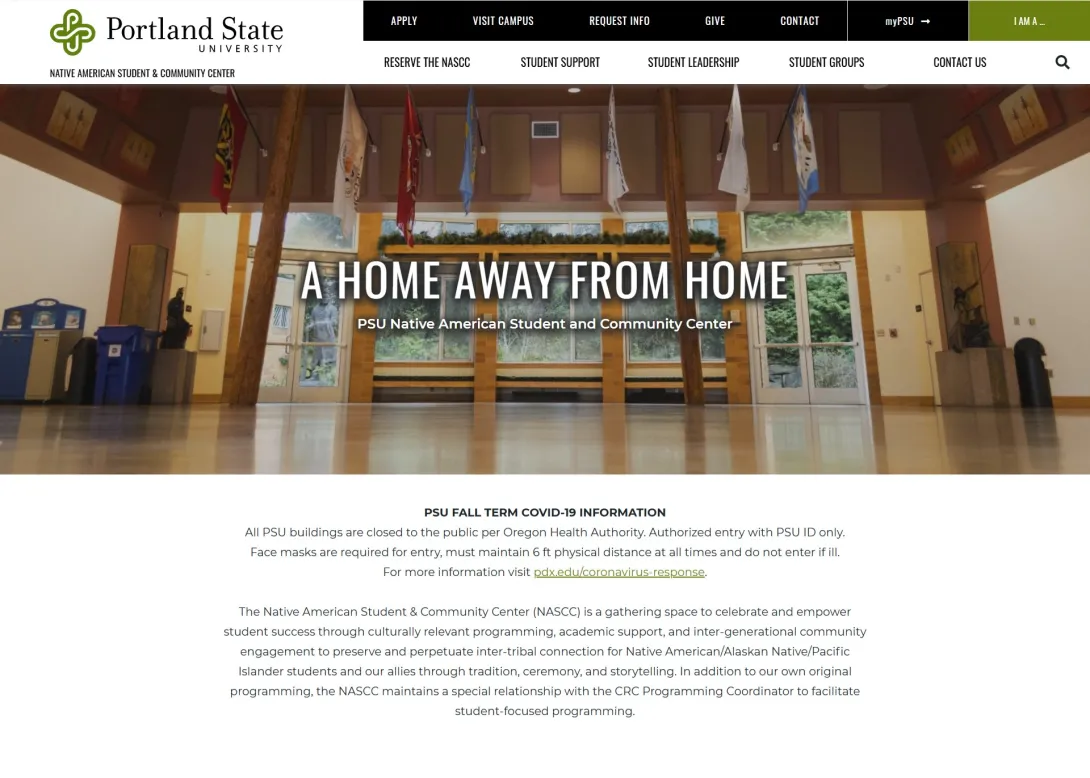Portland State University


Client Info
Portland State University (PSU), ranked among the most innovative public research universities in the country, offers 123 undergraduate and 117 postgraduate programs across seven colleges. They needed to transform their fragmented digital presence of 340+ microsites into a cohesive, manageable platform that non-technical staff could maintain.
Industry
Top challenge
Top solution


This site is built as a foundation for success. Promet’s unwavering commitment to the success of not only meeting each requirement but delivering excellence is a testament to the integrity of the Promet team and brand. Your work lays the basis for PSU’s success for the next several years in attracting and retaining students. My belief is we are on track to be exceptionally successful.

What We Did
We rebuilt PSU's entire web ecosystem on Drupal 8, implementing a component-based design system with five brand themes and a drag-and-drop interface. The solution centered on a single publishing site that feeds 200+ subscriber sites, paired with a streamlined governance model and content syndication system. We also developed a custom Cost of Attendance Estimator to help prospective students understand their educational investment.


Empowered Content Creation
The new platform revolutionized content management by enabling 500 non-technical editors to independently create and style content within PSU's brand guidelines. Using an intuitive drag-and-drop interface with 30-40 customizable design patterns, editors can now build sophisticated layouts without technical assistance.

Streamlined Multi-site Management
A centralized publishing system transformed how PSU manages its digital presence. The platform allows efficient content syndication across hundreds of sites while maintaining brand consistency and security standards. Content updates, maintenance, and compliance are now handled from a single location.
Enhanced User Experience
The redesigned information architecture and navigation system puts students first. A simplified site map, user-friendly URLs, and customizable breadcrumbs create clear pathways to information. The interactive Cost of Attendance Estimator helps prospective students make informed decisions about their education investment.
The Result
In less than three months, PSU's web communications team of 2-3 members successfully launched 216 consistently branded sites. The platform now efficiently manages over 40,000 pages of content, with 300 remote site authors building and maintaining sites independently—dramatically reducing reliance on the central web team and external platforms.
Digital Strategy & Discovery
- User persona development
- Content strategy
- Information architecture
- Governance planning
Design & UX
- Component-based design system
- Responsive templates
- Brand standardization
- Navigation optimization
Development & Integration
- Drupal 8 migration
- Multi-site platform implementation
- Custom estimator tool
- Content syndication system
Technical Infrastructure
- Acquia Cloud hosting
- Security implementation
- Performance optimization
- ADA compliance
Let’s start your project
Whether you're managing multiple microsites or seeking to empower your content teams, we can help you create a unified digital presence that drives results. Contact us to explore how we can bring what's new and next to your institution.
Have a project in mind? Fill out the form above, and we'll be in touch to discuss how we can help you succeed.



